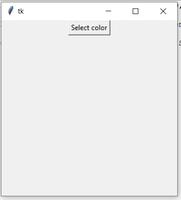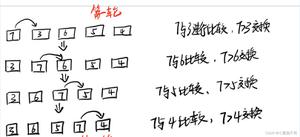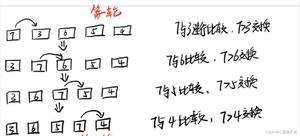python 中条形图绘制 - LiErRui

python 中条形图绘制
一、条形图绘制参数详解
1、bar(left, height, width=0.8, bottom=None, color=None, edgecolor=None, linewidth=None, tick_label=None, xerr=None, yerr=None, label = None, ecolor=None, align, log=False, **kwargs)
- x:传递数值序列,指定条形图中x轴上的刻度值
- height:传递数值序列,指定条形图y轴上的高度
- width:指定条形图的宽度,默认为0.8
- bottom:用于绘制堆叠条形图
- color:指定条形图的填充色
- edgecolor:指定条形图的边框色
- linewidth:指定条形图边框的宽度,如果指定为0,表示不绘制边框
- tick_label:指定条形图的刻度标签
- xerr:如果参数不为None,表示在条形图的基础上添加误差棒
- yerr:参数含义同xerr
- label:指定条形图的标签,一般用以添加图例
- ecolor:指定条形图误差棒的颜色align:指定x轴刻度标签的对齐方式,默认为center,表示刻度标签居中对齐,如果设置为edge,则表示在每个条形的左下角呈现刻度标签
- log:bool类型参数,是否对坐标轴进行log变换,默认为False
- **kwargs:关键字参数,用于对条形图进行其他设置,如透明度等
1 # 条形图的绘制--垂直条形图2 # 读入数据
3 GDP = pd.read_excel(\'Province GDP 2017.xlsx\')
4 \'\'\'
5 Province GDP
6 北京 2.8
7 上海 3.01
8 广东 8.99
9 江苏 8.59
10 重庆 1.95
11 天津 1.86
12 \'\'\'
13 # 设置绘图风格(不妨使用R语言中的ggplot2风格)
14 plt.style.use(\'ggplot\')
15 # 绘制条形图
16 plt.bar(x = range(GDP.shape[0]), # 指定条形图x轴的刻度值
17 height = GDP.GDP, # 指定条形图y轴的数值
18 tick_label = GDP.Province, # 指定条形图x轴的刻度标签
19 color = \'steelblue\', # 指定条形图的填充色
20 width = 0.8
21 )
22 # 添加y轴的标签
23 plt.ylabel(\'GDP(万亿)\')
24 # 添加条形图的标题
25 plt.title(\'2017年度6个省份GDP分布\')
26 # 为每个条形图添加数值标签
27 for x,y in enumerate(GDP.GDP):
28 plt.text(x,y+0.1,\'%s\' %round(y,1),ha=\'center\')
29 # 显示图形
30 plt.show()
②https://matplotlib.org/api/_as_gen/matplotlib.pyplot.barh.html
1 # 条形图的绘制--水平条形图2 # 对读入的数据作升序排序
3 GDP.sort_values(by = \'GDP\', inplace = True)
4 # 绘制条形图
5 plt.barh(y = range(GDP.shape[0]), # 指定条形图y轴的刻度值
6 width = GDP.GDP, # 指定条形图x轴的数值
7 tick_label = GDP.Province, # 指定条形图y轴的刻度标签
8 color = \'steelblue\', # 指定条形图的填充色
9 )
10 # 添加x轴的标签
11 plt.xlabel(\'GDP(万亿)\')
12 # 添加条形图的标题
13 plt.title(\'2017年度6个省份GDP分布\')
14 # 为每个条形图添加数值标签
15 for y,x in enumerate(GDP.GDP):
16 plt.text(x+0.1,y,\'%s\' %round(x,1),va=\'center\')
17 # 显示图形
18 plt.show()
③绘制堆叠条形图
1 import pandas as pd2 import matplotlib.pyplot as plt
3 # 条形图的绘制--堆叠条形图
4 # 读入数据
5 Industry_GDP = pd.read_excel(\'Industry_GDP.xlsx\')
6 # 取出四个不同的季度标签,用作堆叠条形图x轴的刻度标签
7 Quarters = Industry_GDP.Quarter.unique()
8 # 取出第一产业的四季度值
9 Industry1 = Industry_GDP.GPD[Industry_GDP.Industry_Type == \'第一产业\']
10 # 重新设置行索引
11 Industry1.index = range(len(Quarters))
12 # 取出第二产业的四季度值
13 Industry2 = Industry_GDP.GPD[Industry_GDP.Industry_Type == \'第二产业\']
14 # 重新设置行索引
15 Industry2.index = range(len(Quarters))
16 # 取出第三产业的四季度值
17 Industry3 = Industry_GDP.GPD[Industry_GDP.Industry_Type == \'第三产业\']
18
19 # 绘制堆叠条形图
20 # 中文乱码和坐标轴负号的处理
21 plt.rcParams[\'font.sans-serif\'] = [\'Microsoft YaHei\']
22 plt.rcParams[\'axes.unicode_minus\'] = False
23 # 各季度下第一产业的条形图
24 plt.bar(x = range(len(Quarters)), height=Industry1, color = \'steelblue\', label = \'第一产业\', tick_label = Quarters)
25 # 各季度下第二产业的条形图
26 plt.bar(x = range(len(Quarters)), height=Industry2, bottom = Industry1, color = \'green\', label = \'第二产业\')
27 # 各季度下第三产业的条形图
28 plt.bar(x = range(len(Quarters)), height=Industry3, bottom = Industry1 + Industry2, color = \'red\', label = \'第三产业\')
29 # 添加y轴标签
30 plt.ylabel(\'生成总值(亿)\')
31 # 添加图形标题
32 plt.title(\'2017年各季度三产业总值\')
33 # 显示各产业的图例
34 plt.legend(loc =2,fontsize = \'small\')
35 # 显示图形
36 plt.show()
④水平交错条形图
1 # 条形图的绘制--水平交错条形图2 # 导入第三方模块
3 import matplotlib.pyplot as plt
4 import numpy as np
5 import pandas as pd
6 # 读入数据
7 HuRun = pd.read_excel(\'HuRun.xlsx\')
8 # 取出城市名称
9 Cities = HuRun.City.unique()
10 # 取出2016年各城市亿万资产家庭数
11 Counts2016 = HuRun.Counts[HuRun.Year == 2016]
12 # 取出2017年各城市亿万资产家庭数
13 Counts2017 = HuRun.Counts[HuRun.Year == 2017]
14
15 # 绘制水平交错条形图
16 bar_width = 0.4
17 plt.bar(x = np.arange(len(Cities)), height = Counts2016, label = \'2016\', color = \'steelblue\', width = bar_width)
18 plt.bar(x = np.arange(len(Cities))+bar_width, height = Counts2017, label = \'2017\', color = \'indianred\', width = bar_width)
19 # 添加刻度标签(向右偏移0.225)
20 plt.xticks(np.arange(5)+0.2, Cities)
21 # 添加y轴标签
22 plt.ylabel(\'亿万资产家庭数\')
23 # 添加图形标题
24 plt.title(\'近两年5个城市亿万资产家庭数比较\')
25 # 添加图例
26 plt.legend()
27 # 显示图形
28 plt.show()
二、
①
1 # Pandas模块之垂直或水平条形图2 # 读入数据
3 GDP = pd.read_excel(\'Province GDP 2017.xlsx\')
4 # 绘图(此时的数据集在前文已经按各省GDP做过升序处理)
5 GDP.GDP.plot(kind = \'bar\', width = 0.8, rot = 0, color = \'steelblue\', title = \'2017年度6个省份GDP分布\')
6 # 添加y轴标签
7 plt.ylabel(\'GDP(万亿)\')
8 # 添加x轴刻度标签
9 plt.xticks(range(len(GDP.Province)), #指定刻度标签的位置
10 GDP.Province # 指出具体的刻度标签值
11 )
12 # 为每个条形图添加数值标签
13 for x,y in enumerate(GDP.GDP):
14 plt.text(x-0.1,y+0.2,\'%s\' %round(y,1),va=\'center\')
15 # 显示图形
16 plt.show()
②
1 # Pandas模块之水平交错条形图2 HuRun = pd.read_excel(\'HuRun.xlsx\')
3 HuRun_reshape = HuRun.pivot_table(index = \'City\', columns=\'Year\', values=\'Counts\').reset_index()
4 # 对数据集降序排序
5 HuRun_reshape.sort_values(by = 2016, ascending = False, inplace = True)
6 HuRun_reshape.plot(x = \'City\', y = [2016,2017], kind = \'bar\', color = [\'steelblue\', \'indianred\'],
7 rot = 0, # 用于旋转x轴刻度标签的角度,0表示水平显示刻度标签
8 width = 0.8, title = \'近两年5个城市亿万资产家庭数比较\')
9 # 添加y轴标签
10 plt.ylabel(\'亿万资产家庭数\')
11 plt.xlabel(\'\')
12 plt.show()
③
1 # seaborn模块之垂直或水平条形图2 # 导入第三方模块
3 import seaborn as sns
4
5 # 读入数据
6 GDP = pd.read_excel(\'Province GDP 2017.xlsx\')
7 sns.barplot(y = \'Province\', # 指定条形图x轴的数据
8 x = \'GDP\', # 指定条形图y轴的数据
9 data = GDP, # 指定需要绘图的数据集
10 color = \'steelblue\', # 指定条形图的填充色
11 orient = \'horizontal\' # 将条形图水平显示
12 )
13 # 重新设置x轴和y轴的标签
14 plt.xlabel(\'GDP(万亿)\')
15 plt.ylabel(\'\')
16 # 添加图形的标题
17 plt.title(\'2017年度6个省份GDP分布\')
18 # 为每个条形图添加数值标签
19 for y,x in enumerate(GDP.GDP):
20 plt.text(x,y,\'%s\' %round(x,1),va=\'center\')
21 # 显示图形
22 plt.show()
④
1 # 读入数据2 Titanic = pd.read_csv(\'titanic_train.csv\')
3 # 绘制水平交错条形图
4 sns.barplot(x = \'Pclass\', # 指定x轴数据
5 y = \'Age\', # 指定y轴数据
6 hue = \'Sex\', # 指定分组数据
7 data = Titanic, # 指定绘图数据集
8 palette = \'RdBu\', # 指定男女性别的不同颜色
9 errcolor = \'blue\', # 指定误差棒的颜色
10 errwidth=2, # 指定误差棒的线宽
11 saturation = 1, # 指定颜色的透明度,这里设置为无透明度
12 capsize = 0.05 # 指定误差棒两端线条的宽度
13 )
14 # 添加图形标题
15 plt.title(\'各船舱等级中男女乘客的年龄差异\')
16 # 显示图形
17 plt.show()
以上是 python 中条形图绘制 - LiErRui 的全部内容, 来源链接: utcz.com/z/388040.html





